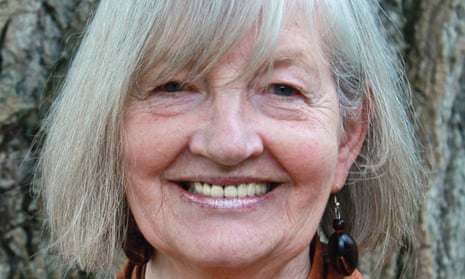My earliest reading memory
Perez the Mouse, a small, pious tale translated from the Spanish, about a six-year-old prince who accompanies the Tooth Mouse on his nocturnal tooth-collecting journeys.
My favourite book growing up
After The Pied Piper of Hamelin, and a glut of Malory Towers, I discovered Lorna Hill’s A Dream of Sadler’s Wells. Her books are peopled with articulate, eccentric characters in a world of music, dance and adventure.
The book that changed me as a teenager
Iris Murdoch’s Under the Net. I lived inside that book night and day. I’d grown up in a somewhat union-flag-waving community, and the book mapped a different kind of Englishness. As the hero and companion wandered the streets of London, I yearned to dawdle with them on Vauxhall Bridge. It encouraged a sort of philosophical daydreaming, and a longing to live in London.
The writer who changed my mind
As a schoolteacher in 1965, I read Ruth Harrison’s Animal Machines, which exposed the horrors of intensive farming. Seven decades on, and we’re still behaving like Nazis to farm animals.
The book that made me want to be a writer
I never had a conscious ambition to be a writer. I “wrote” my first novel while accidentally rediscovering that form of playing that involves talking to pretend people. I became obsessed with tapping out the various rhythms of their speech. A book that possibly influenced me was Elaine Dundy’s 1958 novel The Dud Avocado. Also that concise, energy-charged prose of Jane Austen. Is that why I jump straight into the dialogue and don’t waste time on the scenery?
The book I came back to
Vanity Fair by William Makepeace Thackeray – I couldn’t get on with an author who kept intruding to remind me that the characters were all his puppets. Reading it again, I found it breathtaking in its originality, its wit, its range, its sociopolitical grasp. Becky Sharp pitted against that cavalcade of entitled mediocrity!
The book I could never read again
Daniel Deronda. I love all other George Eliot, but I not only find Daniel a moralising goody-goody, I can’t forgive him for turning against his mother to gang up with the male orthodoxy.
The book that I discovered late in life
I never read a detective story until I turned 70, but now they are my unwinding bedtime reads. Top favourite is Fred Vargas; This Night’s Foul Work, to name but one.
The book I am currently reading
The Third Policeman by Flann O’Brien. An excess of adjectives is never a good thing, but, ah! It’s a teasing, anarchic, dark, funny, convoluted, metaphysical wonder.
